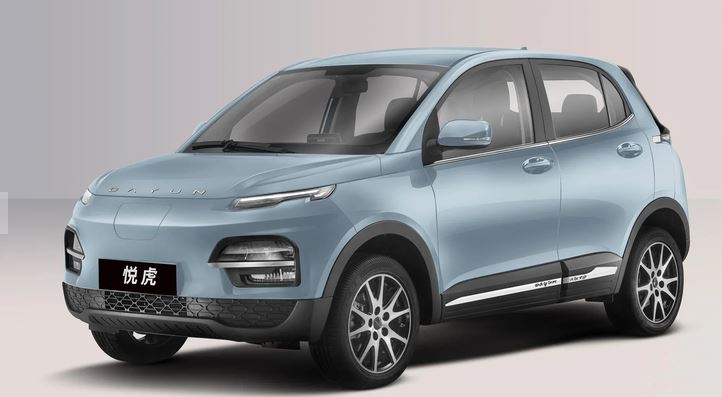Physical Address
60 Ekwema Cres, Layout 460281, Imo
Physical Address
60 Ekwema Cres, Layout 460281, Imo

South Africa’s Cheapest Electric Car: Enviro Automotive has launched SA’s cheapest electric car, the Dayun Yuehu S5, with a starting price which is under R400,000.
The Dayun Yuehu S5 is priced from R399,900 in the ‘Standard’ trim, while the ‘VIP’ version retails at R449,900.
That makes the base model R140,000 less expensive than the BYD Dolphin.
Both models are sold with a three-year/60,000 km warranty and service plan, which also includes roadside assistance, plus a five-year/120,000 km battery warranty.

According to the Pretoria-based company, only eight units from its first batch of Dayun Yuehu S5 remain, after local customers placed pre-orders over the last few months.
Targeting city dwellers and environmentally-conscious individuals who previously could not afford to go electric, the Dayun Yuehu S5 is priced at just under R400 000. It comes in two five-door models: Standard and VIP.
Also Read: Stellantis Aims to Make Electric Cars in South Africa
With more than 35,000 units sold globally over the last seven years, the Dayun Yuehu S5 has become a popular choice for eco-friendly customers, offering low ownership costs, says Enviro Automotive.
The launch could significantly boost EV adoption in South Africa, with more consumers now able to afford the switch to electric.
According to a survey conducted by AutoTrader, EV sales in SA have steadily increased since the vehicles’ introduction to the market, with a notable uptick in interest over the past four years.
South Africa’s Cheapest Electric Car S5 features a front-mounted 35kW synchronous permanent magnet AC electric motor that delivers 105 Nm of peak torque, with a single-speed gearbox.
The Yuehu S5 has a 31.7kWh ternary lithium-ion battery with 330km of claimed range, ideal for daily commutes. It supports AC and DC charging for easy home charging or quick recharges at DC fast-charging stations. It consumes 10.7kWh of energy per 100km (claimed).
With a standard 220V charge, it takes about four hours to recharge. Using a DC fast charger, recharging from 20% to 80% takes less than an hour.
If you find this article helpful, comment and follow us on Facebook at Silicon Africa, Instagram at Siliconafricatech, and Twitter at @siliconafritech.